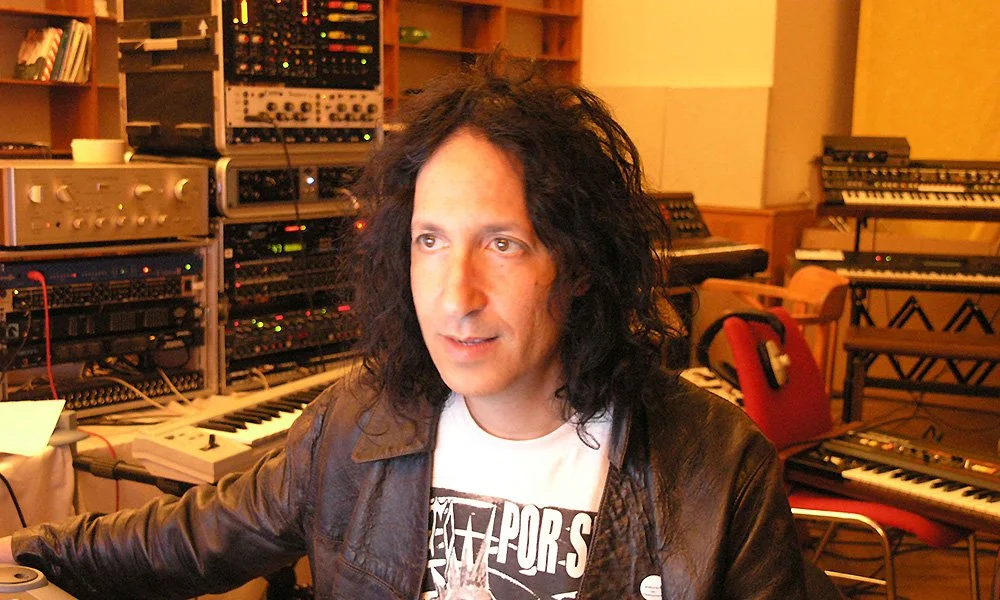Gordon Raphael (The Strokes, Regina Spektor)
Producer Gordon Raphael is widely known for his work with The Strokes, whom he first met at a gig in New York City. He produced their debut EP The Modern Age and their first two albums, Is This It and Room on Fire. Other prominent production credits include Sarah Maguire, Damon Albarn, The Moonies, leading Mexican rock band Fobia, and Regina Spektor’s album, Soviet Kitsch. Raphael also toured as a member of The Psychedelic Furs.
Tell us about your current studio set-up.
Pro Tools 12 on a Mac Pro (Cylindrical/TrashCan) using a Sonnet Thunderbolt Chassis with HD Pro Tools Card and UAD Octo. Hedd Type 20 speakers. Avalon 737sp, Neve 1074 preamp/EQ, 2 Helios 69 modules, API 3124 preamps, 2 Telefunken V72 Distressor, Mutron BiPhase, Marshall and 1970s Fender Twin Reverb amps. Mini Moog Model D (1975) Arp Odyssey (1975) Micro Moog, Moog Source, Arp 2600 Solina Strings, EMS Synthi-A.
My go-to plugins include Waves R-Compressor, UAD LA-2A, UAD EMT 140 reverb, Soundtoys Decapitator, Soundtoys Phase Mistress, UAD API 560 graphic EQ, and UAD Distressor.
Having mixed and produced so many songs over the past few years, how do you stay fresh and excited about making music every day?
I stay motivated because excellent, innovative, and powerful music still makes me crazy with energy, enthusiasm and excitement — just like it did when I was 10 years old hearing Zappa and The Beatles! Luckily, I find such challenging music quite often in the world, year after year, and since I only work with music and musicians I enjoy, the energy is always building.
How do you typically approach a mix?
The first step is that I have to like the music and musician already — from hearing a live recording from a phone, seeing a concert, or hearing demos. Or even old records they made. This tells me so much about where I fit in, and what the working process will be like.
My second step, after getting a good feeling for the project, is to ask immediately: ‘what are you looking for? What do you want it to sound like? And how do you want to record this batch of music?”
I usually like to work with individuals and groups of musicians that like to perform much of the songs LIVE: drums bass, guitar, and keys. Then when the basis is solid and full of life, I’ll add extra parts and vocals afterward. I love this approach because it makes the musicians very tired after an eight-hour session. They have been playing music all day, and they literally can’t do it anymore!
This is preferable to me than me working for eight hours editing micro details, that’s for sure. If there’s a mistake in the bass, I’d rather smile and ask the bassist to play that note once more. It’s much better than me finding another example of that note and using digital copy-paste!
The most important decision I make, and I make it every day I work as a producer: I am going to defend and encourage the artist’s ideas at all times. I’m gonna be like a superhero. If they trust me and are going to pay me for producing, I want them to enjoy their music and be given every opportunity to hear their own ideas very clearly and well.
THEN, when I have a suggestion or a part I want to play/try, I do it my best and ask them if they like it. Most often they do, and when they don’t, I erase it.

